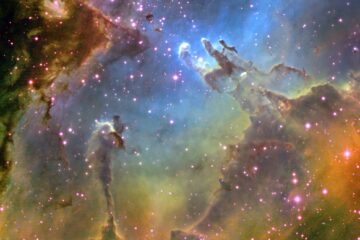Tim Peake is clearly a man who likes a challenge and has a keen sense of adventure, for in his spare time the father of two enjoys skiing, cross-country running, climbing and caving. However the UK-born former pilot from Chichester is due to embark on his greatest adventure before the end of the year, when he floats on board the International Space Station as an astronaut for the European Space Agency.
Awarded the Commander-In-Chief’s certificate for dedicated and exemplary service to the British Army in 2006, Major Peake served as a platoon commander in the Royal Green Jackets (Light Infantry Regiment), before entering the British Army Air Corps. He has a BSc in flight dynamics and evaluation, has picked up a trophy for best rotary winged student and over the years flown over 30 different types of helicopter and fixed-wing aircraft. Before joining ESA he was also a flight instructor and finally a senior helicopter test pilot for Agusta Westland. However after passing fitness assessments, academic tests and additional interviews Major Peake was ultimately selected from over 8000 applicants to enter the ESA’s new astronaut training programme. He started the intensive astronaut basic training course in September 2009 and graduated in November 2010, and with more than 3000 hours flying experience under his belt Tim is now as well-positioned as any for flying beyond Earth’s atmosphere.
When he does he will be flying under the Union Flag on a UK-government-sponsored programme. So what exactly will Tim Peake be doing on the International Space Station during his Principia mission? Well, one of the main drawbacks currently holding up space travel is exposure to and the effects of radiation and microgravity on the human body. Once a person leaves Earth’s protective atmosphere and invisible shield, the magnetosphere, the lack of resistance from gravity although making movement in space effortless, allows bones to become brittle as the strengthening calcium simply fizzes away. Also with blood no longer being pulled to the feet in space the heart no longer needs to pump as vigorously, in turn allowing muscles to lose mass. In addition, the unique environment of space also appears to significantly increase a person’s chances of acquiring kidney stones. The fourth main item to add to this sobering catalogue of the side effects of space on a human being is vision, since 60% of the 300 US residents ever to go to the ISS since 1989 are reported to have developed vision problems after just a few month’s on board. Inside the world’s permanently-orbiting low-gravity science laboratory Major Peake will therefore be taking up the ‘experimental baton’ of other astronauts who have gone before him, by attempting to further our knowledge and understanding of how to maintain a healthy human existence in space.
From inside ESA’s Columbus Lab the 43 year old will execute no less than 25 carefully planned and potentially rather gruelling tests on himself, ranging from effects on his eyesight right the way down to his bone density. Space scientists hope that Tim will be able to contribute some quality body data to their target of 18 month’s-worth of human physiology readings. With this information they will be able to make comparisons, look for trends and note fluctuations. One area in particular scientists hope Tim’s data can help advance things is in the study of asthma, since the dust in a spacecraft’s microgravity environment never settles, often contributing to inflamed airways among its crew. Other experiments Tim may also undertake over the course of five months may contribute to our understanding of material science and future space technologies. So with all of this in mind, and as ‘Principia’ touches the forelock to Sir Isaac Newton’s revolutionary physics 3-parter: ‘Naturalis Principia Mathematica’, a work outlining the main laws of motion and gravity, we can at least acknowledge that Tim Peake’s mission appears to be well named!
In fact following the selection of this mission title (after 4000 people responded to the UK astronaut’s call for suggestions), Major Peake had this to say: “I am delighted with this name that honours one of Britain’s most famous scientists, I hope it will encourage people to observe the world as if for the first time, just as Isaac Newton did. Our planet Earth is a precious and beautiful place and we all need to safeguard it.” While in space, Tim, along with his five fellow crew mates will also share responsibility for maintaining the 400-tonne American-football-field-sized spacecraft as it continues its non-stop 27 000km/hr glide above the Earth. To this end, he has been learning Russian and learning how to operate the space station’s robotic systems along with the Russian equipment he’ll find on board. Not all just hard work and no fun however, having been trained and certified in operating both the US Extravehicular Mobility Unit (the classic white spacesuit) and the Russian Orlan spacesuit it’s more than likely that over the course of his 5-month stay in space the British helicopter pilot will have the onerous duty of performing a spacewalk. A great believer in the value of education, one exciting way that Tim Peake will be able to continue to promote it throughout his Principia Mission will be by issuing assignments to competition-winning children and young people live from space.
If there was any doubt at all that Tim’s mission itinerary would not be serving up enough varied activities to stimulate any prospective astronaut’s imagination, it’s been revealed that Tim has also had the good fortune to be selected to sample cuisine inspired by Michelin-starred chef Heston Blumenthal and British school children once in space. A step up or two from the original baby food mush first eaten by space travellers or the standard freeze-dried vacuum-packed comestibles often found on the space station’s dinner table, The Great British Space Dinner will enable Mr. Peake to tuck into a helmet-shaped pie for a Sunday roast followed by planet-shaped bite-sized dessert treats. The younger generation also apparently suggested a ‘rocket lolly’, asteroid dumplings and space dust popping candy. Through all of the attention on his menu while in space, Tim ultimately hopes in some small way, to promote healthy eating to young people. So what has Maj. Peake most recently been doing?
Well his basic survival training in 2011 involved him spending a week with an international team underground in remote caves in Sardinia to observe his performance and behaviour with little equipment and next to no privacy. Subsequently in June 2012, although not quite at the depth of Captain Nemo’s 20 000 leagues under the sea in the Jules Verne’s tale, Major Peake’s bizarre training programme then saw him serve as an ‘aquanaut’ with five crew mates for 12 days at a depth of 20m below sea level off the coast of Florida. The NASA’s Extreme Environment Mission Operations or ‘NEEMO 16’ mission, sought to develop tools, techniques and procedures for a future asteroid-bound mission. The Peake family have been living in Cologne, Germany, where Tim has been working at the European Space Agency’s Astronaut Training Centre. He was the Eurocom or chief European Communicator and voice of the ground-based European flight control team for the Volare Mission crew until ESA announced his ISS assignment in 2013.

We all live in a NASA submarine, NASA submarine, NASA submarine. Tim Peake during the NEEMO 16 mission.
(Image credit: NASA)
So in the run up to his launch not only have more eyes than ever before been turning towards Tim Peake, but in the last few months there have even been eyes fixed on his vital organs as NASA want to have a thorough understanding of the astronaut’s Earth-self before data is collected from his ‘space body’ next month once he is 415km above the Earth. So last but not least what has the man himself got to say about it all? “It is a huge privilege to be able to fly to space. I look forward to the challenges ahead and I shall be doing my utmost to maximise this opportunity for European science, industry and education to benefit from this mission…It will be one of the most amazing experiences of my life.” David Willet, the UK’s Science Minister clearly considers the £16million to attain Mr. Peake’s seat on the Principia Space Mission a good investment, as does the Prime Minister who has already invited Mr. Peake to his Downing Street home. ESA too are delighted with their new English recruit, Dr. Thomas Reiter, Human Spaceflight Director says: “He’ll do a fantastic job.”
The Principia Mission is due to launch at 11am on Tuesday 15th December 2015 from the Russian Baikonur cosmodrome in Kazakhstan, with Tim Peake’s Soyuz TMA-19M rocket capsule then scheduled to dock with the ISS the same day at around 5pm. So whether Tim Peake along with his fellow crew members makes it up to the ISS in December and succeeds in fulfilling his mission objectives or not, only time will tell. One thing is certain though; if he does it will undoubtedly be a new peek in his professional career, and as the first official British ESA astronaut to go into space, that also of the United Kingdom’s space endeavour.
(Article by Nick Parke, Education Support Officer)








0 Comments